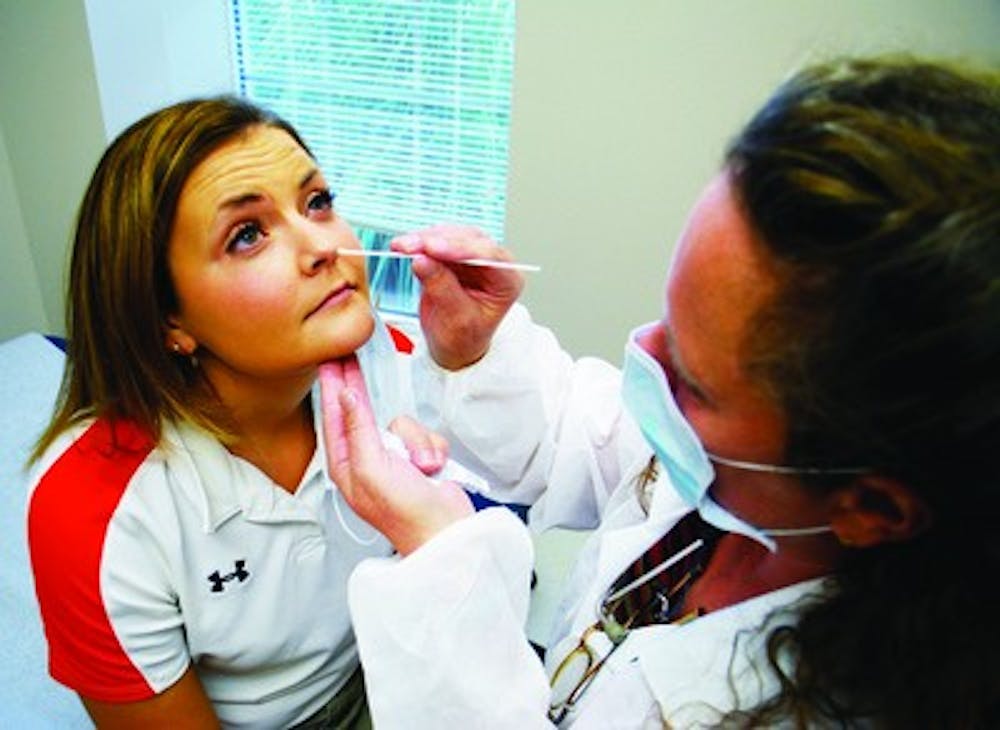H1N1 flu vaccines will be available free for Auburn students and employees in Student Center Rm. 2223 today from 9 a.m. to 3 p.m.
"I highly encourage people to read the official Web sites about the vaccine in advance and come prepared," said Dr. Frederick Kam, medical director of the Auburn University Medical Clinic.
There will be about 1,000 vaccines this week, and more will be available as the University receives them.
Most H1N1 vaccines will be administered through a nasal spray, Kam said. Injections will be available as well, but not immediately.
However, the difference in the vaccines is not just in the way they are administered.
The nasal spray is approved for people ages 2 to 49. It is not approved for pregnant women or those with underlying health conditions, although they are recommended to receive the injection when it becomes available.
"The nasal spray is a Live Attenuated Influenza Virus, while the injection is not," said Amanda Aldridge, spokeswoman for the Centers for Disease Control.
LAIV vaccines are safe and effective, said Sharon Roberts, an immunology professor at Auburn.
"We know that our bodies respond more strongly when we are infected with a live virus," Roberts said. "Attenuated means less strong, which in the case of viruses, means that it will not cause serious disease."
Side effects of the LAIV vaccine may include runny nose, nasal congestion, cough, chills, tiredness, sore throat and headache.
Kam recommended all students get the vaccine, but said certain groups should act quicker.
"First should be those who have significant underlying health problems that put them at greater risk if they were to become infected with H1N1," Kam said.
Second are healthcare workers and students who would put others at risk if infected, such as nursing and pharmacy students.
Third are those under age 24.
The CDC recommends receiving both H1N1 and seasonal flu vaccines.
The process of making, testing and transporting the vaccine has caused the delay in distribution to the public.
"The development of a vaccine is a complicated process," Aldridge said. "The actual strain must first be captured before they can begin to create the vaccine, which then has to go through rigorous trials to ensure safety."
Like seasonal flu vaccines, H1N1 flu vaccines will eventually be available in Alabama through public clinics.
"There will be sufficient supplies, but it will be weeks before we have enough for public clinics," said Dr. Jim McVay, director of health promotion and chronic diseases for the Alabama Department of Public Health.
ADPH plans for vaccination clinics to begin in school systems across Alabama the first week in November, McVay said.
Alabama will receive 2.8 million doses of the H1N1 flu vaccine by January 2010.
Do you like this story? The Plainsman doesn't accept money from tuition or student fees, and we don't charge a subscription fee. But you can donate to support The Plainsman.





